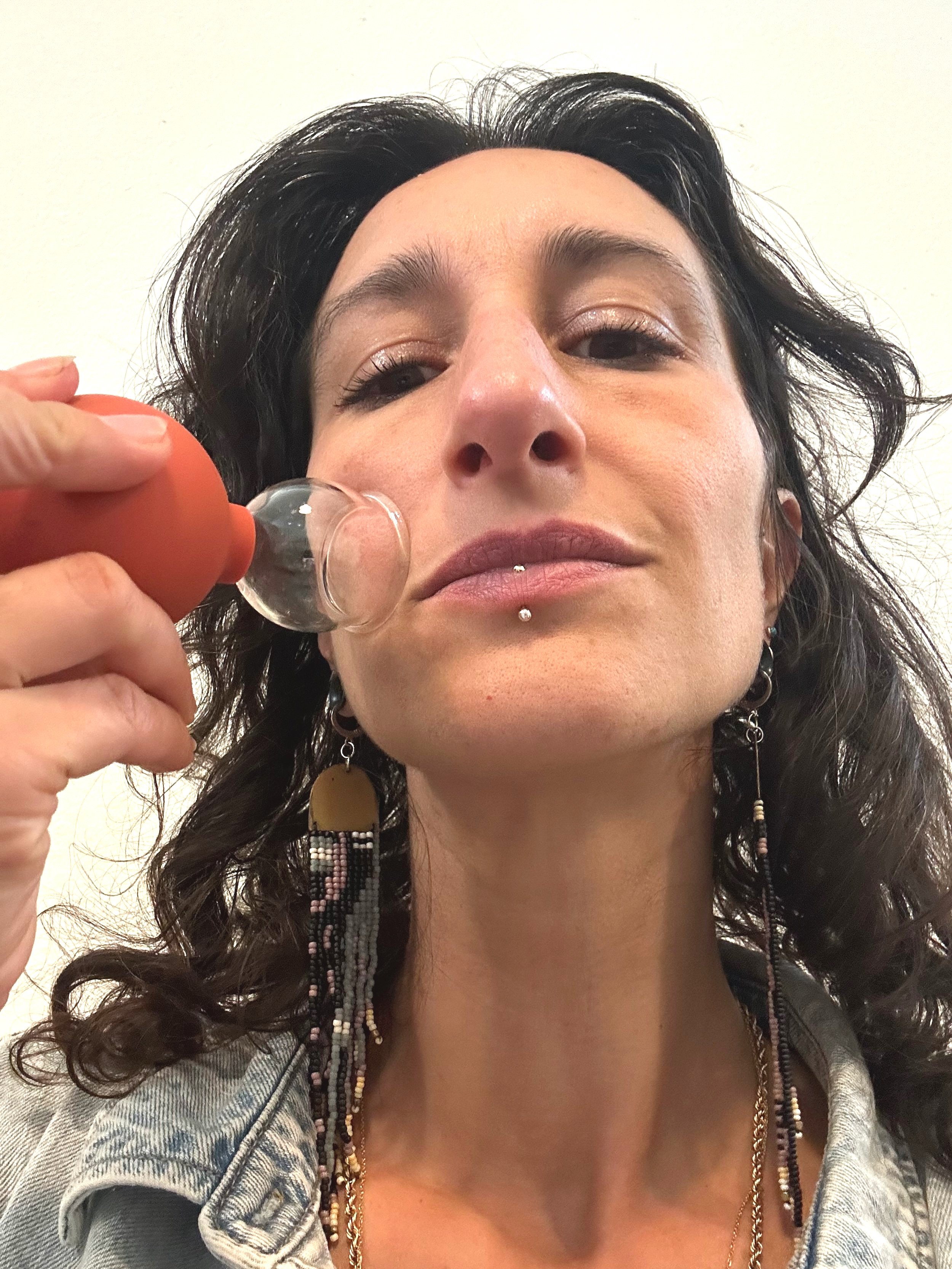Pregnancy Support from a Traditional Chinese Medical Perspective
Pregnancy is a transformative time that encompasses three distinct trimesters, (some cultures even embrace a fourth) each with its own set of challenges and joys. Traditional Chinese Medicine (TCM) offers a holistic approach to pregnancy that focuses on nurturing both the mother and child's well-being.
In this article, we will explore the TCM perspective on pregnancy and dive into the specific strategies for each trimester to promote a healthy and vibrant start to your child's life.
In Chinese Medicine, the vitality of both mother and child is paramount throughout the pregnancy journey. By nurturing your Jing (essence), making mindful lifestyle choices, and seeking holistic support, you can ensure a healthy, vibrant pregnancy and in turn, start to your child's life.
First Trimester
The first trimester is a critical period of embryonic development. It is during this time that TCM recommends a set of holistic practices to support the mother and the growing fetus. The first trimester lasts from weeks 1-12, and during this time a series of remarkable changes occur within the mother's body to support the developing fetus. This period marks the conception of the baby and the early stages of embryonic growth. One of the key events during the first trimester is the formation of vital organs and structures. The heart, brain, spinal cord, and basic circulatory system begin to take shape. The placenta, a critical structure for nutrient exchange, also starts to develop.
Hormonal changes, particularly increased levels of human chorionic gonadotropin (hCG) and progesterone, signal the body to support and maintain the pregnancy. While the baby is still tiny at this stage, its future health and development are being laid down, making it a sensitive time for the mother to focus on proper nutrition, rest, and avoiding harmful substances.
Focus on Rest and Hydration
Proper rest and staying hydrated are essential for a healthy pregnancy. According to TCM principles, adequate rest allows the body to conserve Qi (life force energy) and promote overall well-being.
Prioritize Protein Intake
Protein is a crucial building block for the developing fetus. Incorporate lean protein sources into your diet to support the baby's growth and development. This can also help curb symptoms of nausea or morning sickness.
Address Hormonal Headaches Naturally
TCM offers various natural remedies such as acupuncture and herbal treatments to alleviate headaches and discomfort caused by hormonal changes.
Manage Morning Sickness with Ginger Tea
Ginger is known for its anti-nausea properties in TCM. Ginger tea can help alleviate morning sickness and support digestion.
Maintain a Balanced Exercise Routine
Gentle exercises like Tai Chi or Qi Gong can help improve circulation, reduce stress, and promote overall well-being during the first trimester.
Second Trimester:
The second trimester- weeks 13-27, is often dubbed the "golden period" of pregnancy. By this stage, the baby has grown significantly, and many vital organ systems are well-established. The mother typically experiences reduced fatigue and morning sickness. During this time, the baby's rapid growth becomes evident, with the development of distinctive features, like fingers and toes. Their skeletal system hardens, and the baby begins to move, kicking and responding to stimuli.
In the second trimester, ultrasounds may reveal the baby's gender, and the mother may feel more connected to her child as the movements become more pronounced. The uterus expands, and the mother's body adapts to accommodate the growing baby. While the risk of miscarriage decreases significantly during this period, it's still important for the mother to focus on a balanced diet and regular prenatal care to ensure a healthy and safe pregnancy.
The second trimester is often referred to as the "honeymoon phase" of pregnancy when many women feel their best. TCM emphasizes the following practices for this period:
Focus on a Nutritious Diet
Focus on a well-rounded diet rich in protein and vegetables. TCM encourages a balance of flavors and food groups to support the growing fetus.
Address Common Issues
Heartburn, headaches, and leg cramps can be common during the second trimester. TCM offers natural remedies and dietary adjustments to alleviate these discomforts.
Consider Prenatal Acupuncture
Prenatal acupuncture can help maintain balance and harmony in the body, addressing various pregnancy-related concerns and promoting overall well-being.
Third Trimester (Weeks 28-40+)
The third trimester- weeks 28-40+, brings the pregnancy journey to its final stages. During this time, the baby's rapid growth continues, and they gain significant weight. The organs and systems mature further, making them better prepared for life outside the womb. The mother's body undergoes various changes to accommodate the growing baby, including the softening of the cervix and the dropping of the baby into the pelvis in preparation for birth. The third trimester can be physically challenging for the mother due to the added weight and pressure on her organs, which may lead to discomfort, backaches, and swelling.
Towards the end of this trimester, the mother might experience Braxton-Hicks contractions as her body prepares for labor. The mother must focus on proper prenatal care and prepare for childbirth, whether through classes, creating a birth plan, or packing a hospital bag, as she gets ready to welcome her baby into the world.
The third trimester is the final leg of the pregnancy journey, and it's all about preparing for childbirth and managing the discomforts of late pregnancy.
Manage Discomfort with Body Pillows and Prenatal Massage
TCM suggests using body pillows to support your changing body and seeking prenatal massages to relieve tension and discomfort.
Address Heartburn and Breathing Difficulties through Acupuncture
Acupuncture can help alleviate heartburn and improve respiratory function, ensuring both mother and baby are comfortable. It is also a great time to discuss labor preparation with your practitioner.
Prepare for Childbirth with Birthing Classes
TCM emphasizes the importance of being mentally and physically prepared for childbirth. Consider enrolling in birthing classes to learn relaxation techniques, helpful acupressure points, and coping strategies.
Introduce Herbs
This is a great time to introduce herbs into your daily routine to help prepare the body and mind for labor. NORA tea is a great place to start. This is a blend of Nettle, Oatstraw, Red Raspberry leaf, and Alfalfa.
Fourth Trimester
The fourth trimester, often referred to as the postpartum period, is a crucial phase that extends beyond childbirth. It's a time of adjustment, healing, and bonding for both the mother and the newborn. Traditional Chinese Medicine places great emphasis on nurturing the mother's physical and emotional well-being during this period. It recognizes that the body undergoes profound changes, and it is essential to support its recovery. TCM offers holistic approaches that include nourishing, warming foods, gentle exercises, and restorative practices such as postpartum acupuncture and herbal therapies. These methods help balance the body, promote lactation, and alleviate common postpartum issues.
The emotional and physical well-being of the new mother is the main focus here as TCM believes that a mother's state can profoundly affect her baby's development. Taking time to focus on emotional support and self-care for mothers are integral components of TCM's approach to the fourth trimester, ensuring a smooth transition into the journey of motherhood.
Engaging in a holistic approach to pregnancy and focusing on specific aspects of the first, second, third, and even fourth trimesters, empowers mothers to embrace the transformative journey with grace and well-being. Remember, consulting with a qualified TCM practitioner during pregnancy is essential to tailor these approaches to your unique needs.


































This article explains the transformative power of the CHIRP Wheel, a unique spinal relief tool designed to prevent excess pressure on the spine while targeting muscles on both sides of your neck and back. It also offers simple steps for a safe and effective experience!